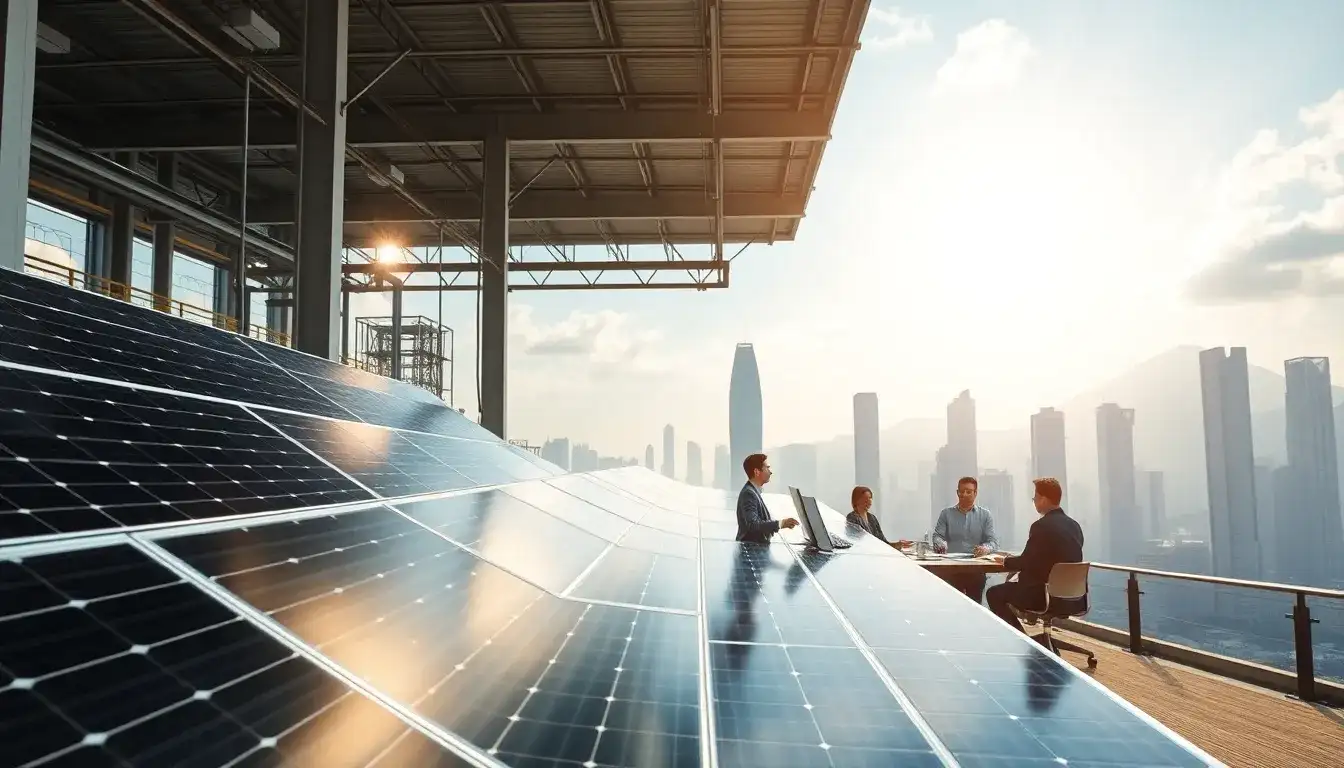
JinkoSolar, a leading player in the photovoltaic (PV) industry with a market capitalization exceeding 40 billion yuan, has been quite active in the market lately, attracting attention both within and outside the industry. In late February of this year, the company announced its plans to issue H-shares and seek a listing on the Hong Kong Stock Exchange, sparking widespread discussion.
Shortly thereafter, on March 10, JinkoSolar received a resignation application from Wu Tingdong, the Vice President and Board Secretary. Reports indicate that the new appointee will be Qin Shilong, who has served as the Board Secretary at TCL Zhonghuan for seven years. The timing of this change closely aligns with the company’s plans for a Hong Kong listing, prompting inquiries into any potential connections. However, when approached for comments, the company’s securities department merely stated that “this change in board secretary is a normal personnel adjustment.”
Insiders revealed that Wu Tingdong had been managing numerous tasks, and following his departure as Board Secretary, he will focus on other business areas. Wu, born in 1975, has a rich background in various companies before joining JinkoSolar in 2011. He held several important positions, including Senior Manager in the Public Relations Department, Senior Manager in the Project Development Department, Vice President of the Power Plant Division, and Assistant President. Since July 2018, he has served as Assistant President of JinkoSolar.
JinkoSolar’s founder and Chairman, Jin Baofang, entered the PV industry in 1996, initially working in silicon rod and wafer production. He established JinkoSolar in 2005, focusing on solar cell manufacturing. The company went public on the NASDAQ in 2007, later expanding into downstream components and solar power generation by 2012, achieving a fully integrated supply chain. After privatizing from the U.S. stock market in 2018, JinkoSolar went public again in 2019 via a reverse merger with Tianye Tonglian on the Shenzhen Stock Exchange.
In November 2019, the company completed a significant asset restructuring, shifting its focus towards the PV sector. Prior to this, Tianye Tonglian was mainly engaged in railway bridge construction and related services. After the restructuring, Jin Baofang was elected Chairman of the Board, and Wu Tingdong took on the role of Board Secretary. The company’s stock was officially renamed from “Tianye Tonglian” to “JinkoSolar” on December 13, 2019.
JinkoSolar has experienced rapid growth, with revenue climbing from 21.155 billion yuan in 2019 to 81.556 billion yuan in 2023. The net profit attributable to shareholders rose from 1.252 billion yuan to 7.039 billion yuan during the same period. Notably, the company achieved substantial profits of 5.534 billion yuan and 7.039 billion yuan in 2022 and 2023, respectively. However, as the industry enters a downturn in the first half of 2024, JinkoSolar faces a projected loss of 4.5 to 5.2 billion yuan for the year.
Similar challenges have affected other major players in the sector, including Trina Solar and TCL Zhonghuan. JinkoSolar attributed its financial fluctuations to a cautious approach, conducting impairment tests on long-term assets showing signs of depreciation. The company indicated that the scale of these impairments would be detailed in its 2024 annual report.
Despite the challenges, JinkoSolar’s effective capacity predominantly consists of N-type TOPCon technology. To counter the current performance decline, the company plans to maintain technological leadership by launching the DeepBlue 5.0 module, which boasts an efficiency of 24.8%. Additionally, JinkoSolar aims to reduce costs and enhance efficiency, optimize its global supply chain, and explore new financing channels to improve its capital structure. The company also emphasized that stabilization in module prices could gradually alleviate its losses.
As of the third quarter, JinkoSolar reported current liabilities of 49.794 billion yuan against current assets of 55.545 billion yuan. This includes 34.289 billion yuan in cash and receivables, which can cover 30 billion yuan in payables. The company is actively pursuing measures to enhance cash flow from operations and manage capital expenditures prudently.
In late February, JinkoSolar’s plan to list in Hong Kong was articulated as a key step in advancing its global development strategy, aiming to accelerate the integration of market, supply chain, and R&D efforts, and to establish an international capital operation platform, thereby enhancing its brand image and competitive strength.
JinkoSolar’s history of active capital market engagement is evident from its recent fundraising efforts, which have included raising 7.5 billion yuan through private placements in 2019, and subsequent fundraising rounds in 2020 and 2022 that brought in 5.2 billion yuan and 5 billion yuan, respectively, along with plans for 8.96 billion yuan in convertible bond financing in 2023.
Moreover, JinkoSolar is investing significantly in global expansion, including a new company in the U.S. with a 1.244 billion yuan investment in a 2GW module project, and plans for a 2.715 billion yuan investment in a 5GW high-efficiency battery project in Vietnam. Looking ahead, the company aims to invest 3.957 billion yuan in a project in Oman that will produce 6GW of high-efficiency solar cells and 3GW of high-power solar modules.
As JinkoSolar continues to invest heavily in its global initiatives, the actual performance of these projects will be closely monitored by the industry.







